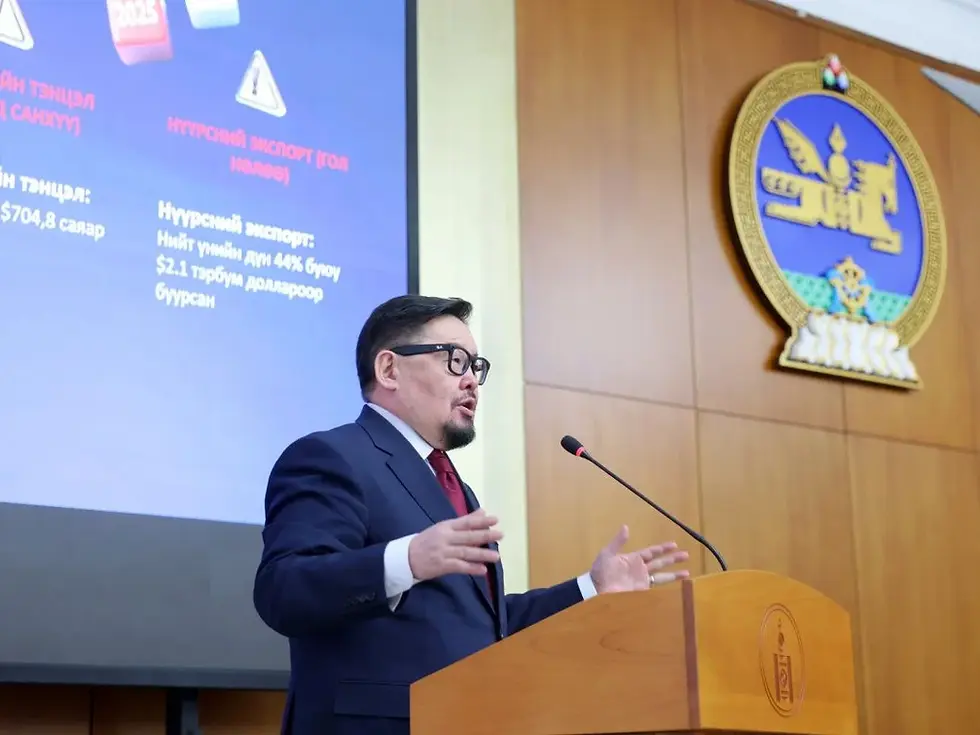Wrestling Legend Pledges to Fight UB’s Notorious Pollution and Traffic
- Mongolia Weekly

- Nov 4, 2020
- 2 min read
Senior Reporter Anand Tumurtogoo | Ulaanbaatar
The overwhelming majority of the Ulaanbaatar city assembly elected MP Sumiyabazar Dolgorsuren as Mayor of Ulaanbaatar last week.
Ditching his parliamentary seat to become the city mayor raised eyebrows in some quarters, while others highlighted his history as a martial artist, traditional wrestling champion and business entrepreneur. Few mused why he would decide to leave national politics for the city administration.

Yet Sumiyabazar has grown to become a seasoned politician over the past decade. His move to the city may be part of a long term plan to return to national politics, but this time with higher ambitions.
Sumiyabazar first joined politics back in 2006 after he retired from competitive sports. He was eventually elected to the local assembly of UB’s Songinokhairkhan district in 2008. That year the blue wave of Democratic party swept the district, but Sumiyabazar clinched one seat for the MPP, demonstrating his competitive stamina.
In 2012, he entered national politics with strong grassroots support and was elected from Songinokhairkhan three times, including last summer.
In addition, Sumiyabazar also served as the Minister of Mining and Heavy Industries from 2017 to 2020 and honed his leadership skills by chairing the UB city party committee.
While his track record and reputation as a ‘city-boy’ may give Sumiyabazar credibility with the people, the district he represented remains one of Ulaanbaatar’s poorest and most crime-ridden, according to the National Statistics Office of Mongolia.
In addition, Sumiyabazar's party members have echoed public criticisms of Rio Tinto and Turquoise Hill Resources, the majority owner of the Oyu Tolgoi mine (OT), but Sumiyabazar was one of the advocates for OT when he was a minister and has previously seemed in favor of the project.
He also made questionable policy decisions on artisanal miners and appeared to favour industrial scale operations. Before December 2018, artisanal miners in Mongolia weren’t subject to royalty fees, but the royalty law was expanded to include them in 2019. The National Federation for Artisanal and Small Scale Mining argued that the decision forced artisanal miners to use illegal mining methods.
Sumiyabazar's critics have also argued that he served the interests of big business when he became the minister of mining, which contributes the majority of the state budget. They see his appointment as Mayor as a continuation of that pattern, as Ulaanbaatar spends the majority of the same budget.
Sumiyabazar appeared to show some reluctance to take up the role of the mayor of Ulaanbaatar, claiming that ‘it’s an honour’ to serve the people of the capital city but he is giving up a higher position to do so.
His comments were met with sharp criticism from Labor Party council member Naranbayar, who asked the new mayor-elect to show his staunch willingness to work for all citizens of the city.
“I will lower the traffic congestion twice as much as your party has promised,” Sumiyabazar responded.
This article originally appeared in our weekly newsletter. You can get more exclusive intelligence from Mongolia delivered straight to your inbox every week: just follow this link to subscribe.



Comments